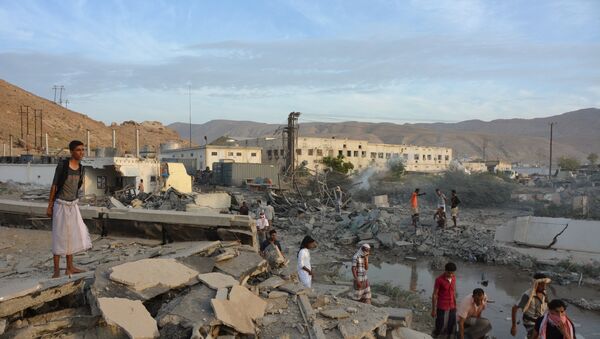Richard Bennett, the head of Amnesty International's UN office, tells Radio Sputnik that Saudi Arabia cannot remain an active member of the council while it continues to unlawfully kill and injure civilians in Yemen and, at the same time, violate the human rights of its own citizens at home.
"In more than a year since the conflict in Yemen began…the Saudi-led coalition has launched scores of airstrikes which appear to have deliberately targeted civilians, including hospitals, schools, markets, mosques, and so on. They also have used internationally banned cluster munitions," he says.
Bennett points out the multiple violations of human rights in Saudi Arabia, including its crackdown on dissidents, increased number of executions, unfair trials, arbitrary detention, and torture, as well as its use of a counter-terrorism law to undermine freedom of speech.
"And so we are making the call now, because no one has called Saudi Arabia to account over this, and previous attempts to do so have not been successful. In fact, Saudi Arabia has used its position as a member of the Human Rights Council to shield itself from international scrutiny."
Saudi Ambassador to the Human Rights Council Faisal Trad has said that he rejects accusations from Amnesty International and Human Rights Watch.
"We are absolutely certain in our facts." Bennett asserted. "We don't doubt the conduct of Saudi Arabia and we think that they have disqualified themselves as a member of the Human Rights Council."
"We consider that the Human Rights Council is an important organization to defend human rights globally, and its credibility is in the balance if it allows a serious violator of human rights like Saudi to remain as an influential member of that council."
Members of the UN Humans Rights Council are elected for a three year term. Saudi Arabia is in its final year of membership. Only a two-thirds majority vote of the UN General Assembly can suspend the country from the council.
"It is not an easy call, but that's not the reason for us to refrain from making it." Bennett said. "We believe that the issue ought to be raised in the General Assembly."



